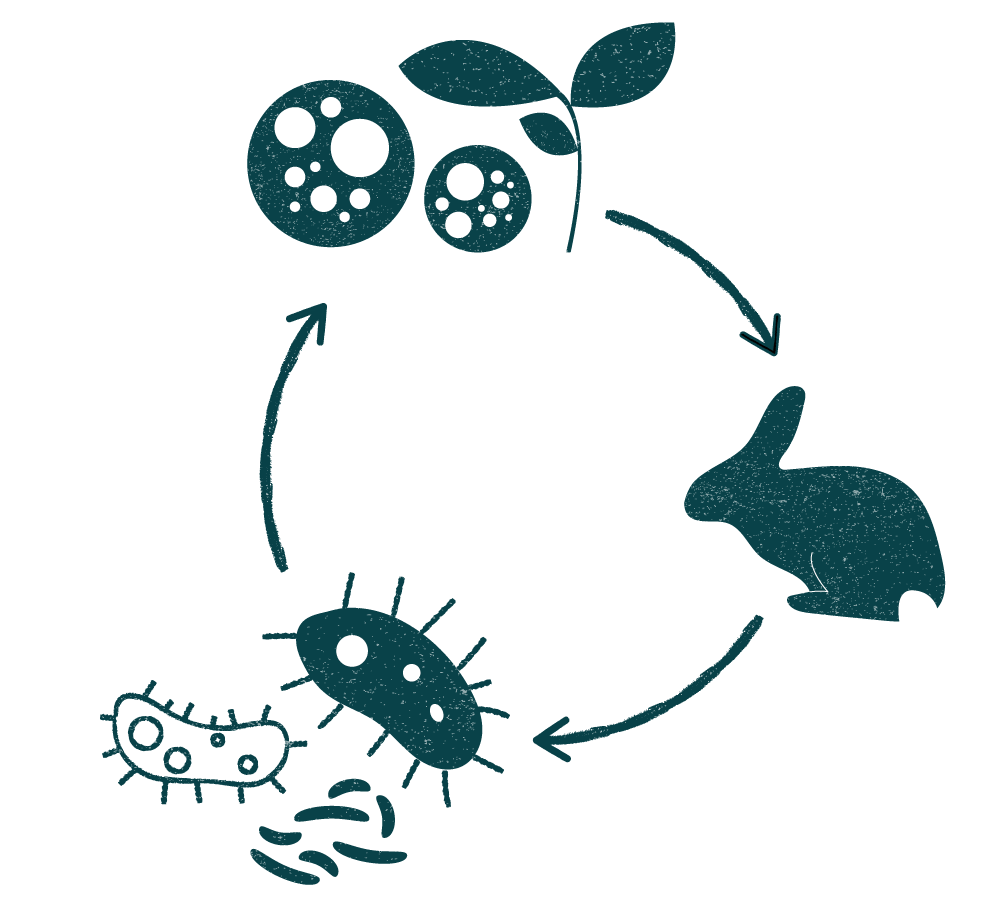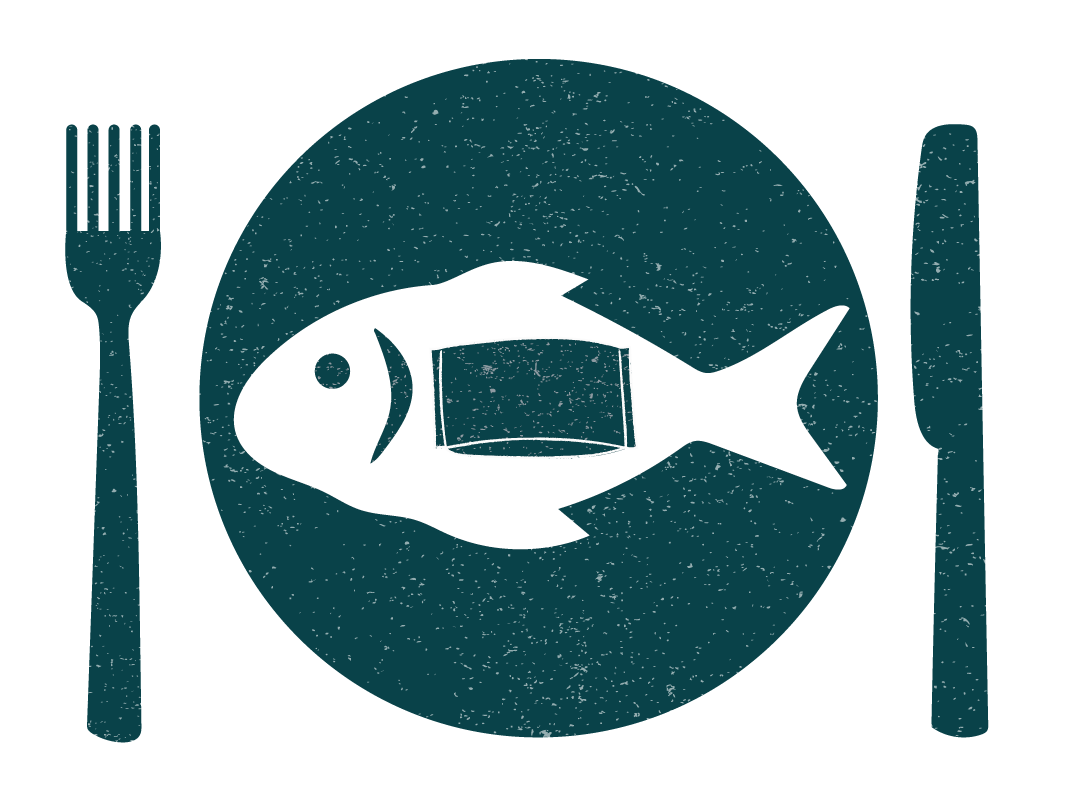
1// How does nature dispose?
In nature, materials and energy circulate in an infinite cycle. Fats, sugars and proteins form the basis of this system as universal building blocks.
It is a network of three types of organisms interacting with each other: producers, consumers and decomposers; with the help of solar energy, producers (e.g. algae) build their own structures from the existing universal building blocks. Consumers (herbivores and carnivores) use these energy-dense structures to build their own tissue. These can be broken down again by the decomposers into universal building blocks, which are again available for the producers: an endless cycle of energy and matter. Biodegradation is a simple principle that nature has always used: A material consisting of organic compounds can be completely broken down (metabolized) by microorganisms (fungi, bacteria, enzymes) into its constituent organic compounds, which can be reintegrated into the biological cycle as universal building blocks.

2// What is the problem with plastics?
Many synthetic (often petroleum-based) plastics currently used for packaging are resistant to degradation. They simply cannot be broken down by biological degradation mechanisms. These substances are referred to as persistent. Nevertheless, they get broken down into smaller pieces by UV radiation or erosion. As microplastics, they accumulate in nature and become part of our food chain.

3// What are biodegradable plastics?
A plastic is biodegradable if it can be completely broken down by biodegradation mechanisms into carbon dioxide, biomass and nutrients, fast enough not to lead to permanent damage or accumulation in the environment.
However, degradability strongly depends on the environment: Depending on the environment (the sea, the composting plant, the human body), differing conditions prevail and differing sets of micro-organisms are present. When something is labeled as biodegradable, one should ask: In which environment and in which period of time?

4// What are compostable plastics?
A plastic is compostable if it degrades in a defined period of time under defined and controlled conditions, such as those found in industrial composting facilities. Certain standards exist for this purpose, such as EN13432, where the time period is three months. Compostable plastics are, therefore, biodegradable, but biodegradable plastics are not automatically compostable.
During the composting process, the plastic in the plant is transformed together with the organic waste by water, oxygen, and microorganisms into heat, moisture vapor, carbon dioxide, and compost. The compost is used as a fertilizer.
Current challenges with compostable plastics: The throughput of composting plants is faster than specified in the norms. This means that most certified compostable plastics still decompose too slowly in reality, that’s why we need materials that decompose more quickly. In addition, the collaboration between producers and disposers needs to improve. Only this will enable truly sensible composting of plastics.


